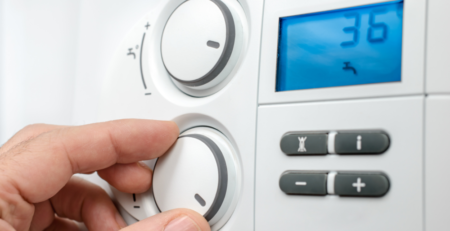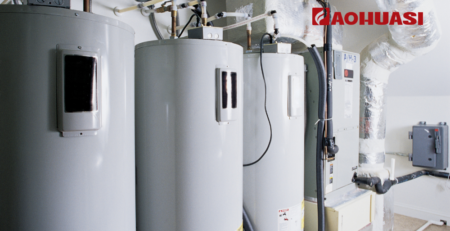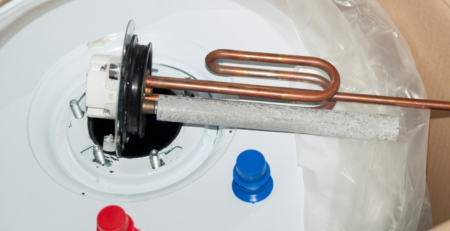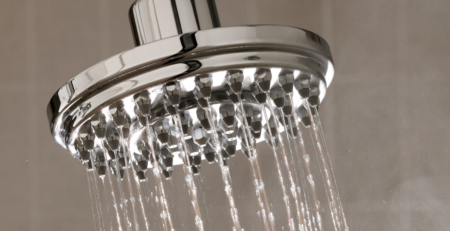Unlocking Savings: The Cost-Effective Electric Water Heater Guide
The Cost-Effective Electric Water Heater Guide In the pursuit of a cost-effective and efficient home, the choice of an electric water heater plays a pivotal role. This guide explores the factors that contribute to cost-effectiveness, helping homeowners make informed decisions that align with their budget while ensuring a reliable and energy-efficient supply of hot water.
1. Energy Efficiency Ratings Matter
When considering cost-effectiveness, pay close attention to the energy efficiency ratings of electric water heaters. Look for models with high Energy Factor (EF) ratings, as this indicates how efficiently the unit converts energy into hot water. A higher EF rating translates to lower operating costs over the long term.
2. Tankless vs. Storage Tank: Analyzing Costs
Determine whether a tankless or storage tank electric water heater better suits your needs. While tankless models are more energy-efficient and provide hot water on demand, they often have a higher upfront cost. Storage tank heaters may have a lower initial price, but their operational costs might be higher due to standby heat losses.
3. Size Matters: Choosing the Right Capacity
Selecting the right size electric water heater is crucial for cost-effectiveness. An oversized unit may lead to unnecessary energy consumption, while an undersized one may struggle to meet your hot water demands. Consider factors such as the number of occupants and peak usage times to determine the appropriate capacity for your household.
4. Consider Heat Pump Technology
Electric water heaters equipped with heat pump technology offer significant energy savings. These units extract heat from the surrounding air, making them more energy-efficient than traditional heating elements. While they may have a higher upfront cost, the long-term energy savings often outweigh the initial investment.
5. Programmable Thermostats for Efficiency
Look for electric water heaters with programmable thermostats. These allow you to set temperature schedules based on your household’s usage patterns. By lowering the temperature during periods of inactivity or when hot water demand is low, you can optimize energy usage and reduce heating costs.
6. Government Rebates and Incentives
Explore available government rebates and incentives for energy-efficient appliances. Many electric water heaters that meet specific criteria qualify for financial incentives, helping offset the initial purchase cost. Check with local utility providers and government programs to unlock potential savings.
7. Longevity and Maintenance Considerations
Consider the lifespan and maintenance requirements of electric water heaters. While some models may have a higher initial cost, their durability and minimal maintenance needs can result in long-term savings. Regular maintenance, such as flushing the tank to remove sediment, can contribute to efficient operation and extended longevity.
8. Time-of-Use Rates and Smart Features
If your utility provider offers time-of-use rates, leverage smart features available in some electric water heaters. These features allow you to schedule heating during off-peak hours when electricity rates are lower, maximizing cost savings. Smart connectivity also provides real-time monitoring, helping you stay in control of energy consumption.
Conclusion
Unlocking savings with a cost-effective electric water heater involves a careful consideration of various factors. By focusing on energy efficiency, choosing the right size and type of heater, and exploring available incentives, homeowners can make choices that align with their budget while enjoying a reliable supply of hot water. The key is to balance upfront costs with long-term savings and efficiency.
Absolutely, making informed decisions when it comes to selecting a cost-effective electric water heater involves considering multiple factors. Here’s a breakdown of key considerations for unlocking savings:
- Energy Efficiency: Prioritize energy efficiency when choosing an electric water heater. Look for units with a high Energy Factor (EF) rating, as this indicates how efficiently the heater converts energy into hot water. Higher EF ratings typically result in lower energy consumption and reduced operating costs over time.
- Right Size and Type: Selecting the right size and type of electric water heater is crucial. Consider the hot water demands of your household, the number of occupants, and simultaneous hot water usage. Tankless electric water heaters are great for on-demand hot water, while storage tank heaters are suitable for homes with consistent, predictable hot water needs.
- Explore Available Incentives: Research and take advantage of available incentives or rebates for energy-efficient appliances. Many utility companies and government programs offer incentives to encourage the adoption of energy-saving technologies. These incentives can help offset the initial cost of a more efficient electric water heater.
- Balance Upfront Costs: While it’s essential to consider upfront costs, it’s equally important to evaluate long-term savings and efficiency. A higher upfront investment in a more efficient electric water heater may lead to substantial savings on energy bills over the life of the unit. Consider the payback period and total cost of ownership to make an informed decision.
- Consider Lifetime Costs: Look beyond the initial purchase price and factor in the lifetime costs of the electric water heater. Consider maintenance requirements, potential repairs, and energy efficiency. A slightly higher upfront cost for a more efficient unit may translate into significant savings over the years.
- Installation Costs and Requirements: Assess the installation costs and requirements associated with the chosen electric water heater. Tankless units may have different installation considerations than storage tank heaters. Professional installation ensures that the unit operates efficiently and safely.
- Warranty and Reliability: Check the warranty offered by the manufacturer. A longer warranty period often reflects the confidence the manufacturer has in the product’s reliability. Consider reviews and ratings from other homeowners to gauge the long-term performance and reliability of the chosen electric water heater.
By carefully considering these factors, homeowners can make informed decisions that align with their budget and provide a reliable supply of hot water. The goal is to strike a balance between upfront costs, long-term savings, and the overall efficiency of the electric water heater. If you have any specific questions or need further assistance on this topic, feel free to ask!





Leave a Reply